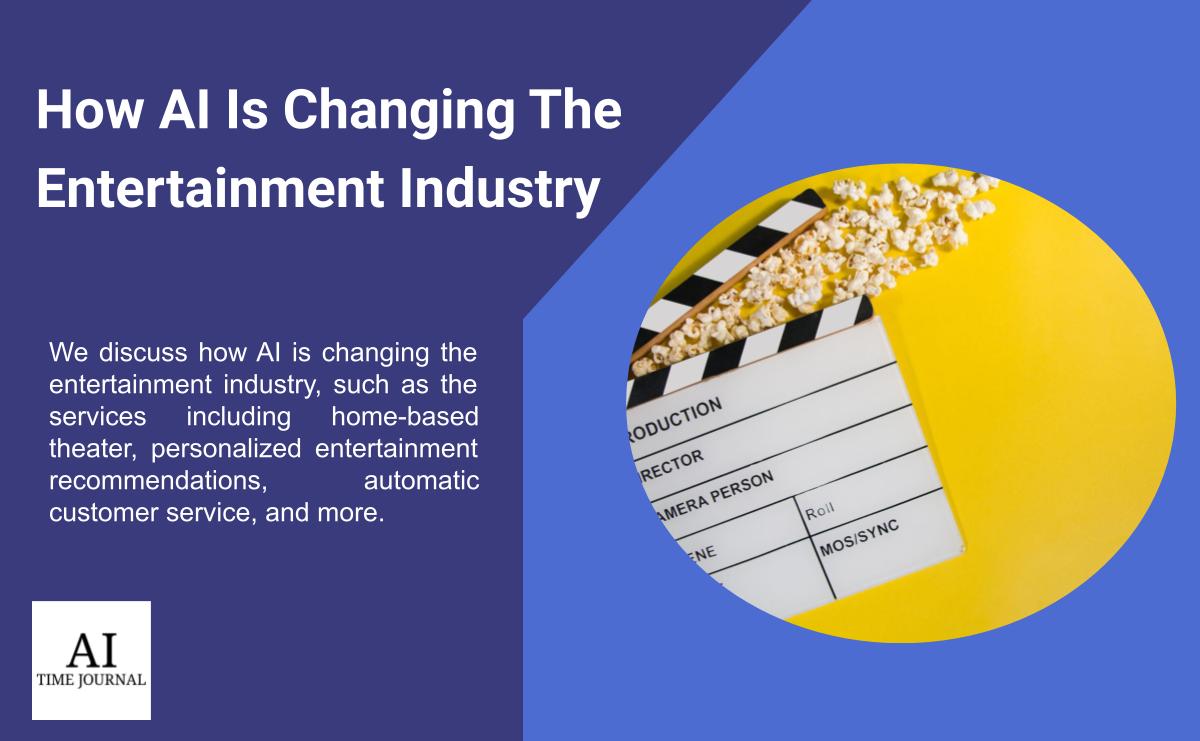
Movies have traditionally shown us how frightening AI might become in the future. Ironically, these very movies have been produced with the help of Artificial Intelligence, for example, with pre-production and editing.
However, the relationship between Tech and Media has been much more harmonious than sci-fi movies permit, and it is high time we analyze this relationship from the perspective of Artificial Intelligence. AI has already started changing the face of the Entertainment Industry with Hyperpersonalisation, SEO, Enhanced AR, and VR, and many more.
Therefore, this is a prime opportunity for business professionals to invest and expand in media. Not to mention, tech enthusiasts are also on the way to finding a career that has a perfect blend of Entertainment and AI.
As this is an emerging landscape, opportunities are limitless, making it a lucrative path for people to drive innovations and push boundaries.
Content Personalisation
Looking up millions of movies and songs for hours to find the perfect 2-hour watch isn’t easy. Shortlisting binge watches from trailers and recommendations online also requires significant research; it is beyond stressful. This problem is solved by AI-driven Hyperpersonalisation.
AI-driven software can collect, curate, and prioritize an individual’s past preferences and genre likings into elaborate datasets. From there, the algorithm can find the perfect movie/song for the customer. Instances of personalization include aligning the customer with the perfect:
- Genre
- Movie length
- Favorite actors/directors
- Topic, etc.
Netflix and Spotify routinely do this to customize their customers’ preferences and thus increase customer retention.
This model has been successful because customers are ready to pay premium prices for subscriptions, which has led the world to adopt streaming services (I.e Netflix, Hulu, Amazon Prime, HBO Max, Disney+, etc.).
AR and VR
Augmented Reality and Virtual Reality are heavily limited spaces unless Artificial Intelligence intervenes.
AR and VR provide users with more immersive experiences, thereby taking entertainment to the next level. Not bound by 2 dimensions anymore. AR is mainly found in sporting events as well as in museums and presentations. This gives users real-time information about the objects or circumstances around them.
Virtual Reality, on the other hand, allows users to enter an entirely different reality of their choice. VR is set to become more popular with Meta spending significant resources on it already.
Artificial Intelligence can mine appropriate information instantly through deep learning making the experience much more detailed. Through Machine Learning (ML), AR and VR applications are continuously improving with access to vast data sets.
SEO and Advertising
Artificial Intelligence makes Search Engine Optimization (SEO) more efficient as it has access to massive data sets. An automated approach toward SEO and advertising is required as customers’ preferences are continuously changing. Keeping up with it in real-time is important for businesses to maintain relevance in competition.
Businesses can save a lot of resources by a targeted advertisement that focuses on individuals’ preferences through deep learning, instead of outdated assumptions. This also helps to increase profit margins as the likelihood of a customer finding their fit significantly improves, increasing customer satisfaction.
AI in advertising is predicted to improve further due to it being more prevalent nowadays, thereby kickstarting the ML process.
How AI is changing advertising provides further analytics on AI’s relationship with advertising.
Streaming Quality
Improving the quality of streaming is important to keep the viewers’ content. This is very crucial because unless the viewer is content with the interface, they’ll likely not continue with the show and opt out of the streaming service entirely.
This is similar to websites. If the customers don’t like how the front end of the website is designed and find it difficult to maneuver their way through it, they’ll quit and find alternatives.
Netflix, amongst many other techniques, uses ML to regularly upgrade its front-end, back-end, and interface to maintain customer retention. This top-notch streaming quality is a big reason behind Netflix’s initial success.
Better cybersecurity for fraud detection
Just like in any other industry, in entertainment cybersecurity is very important. With the rise of the entertainment industry, its susceptibility to cyber-attacks also increases. Installing vicious malware and cases of ransomware are becoming much more common.
In 2021, Funke Media Group was a victim of dangerous ransomware, which plagued more than 6000 computers.
Why cyber-attacks against film and media industries are escalating provides the appropriate background of why cybersecurity is more important than ever.
Artificial Intelligence can detect suspicious IP addresses, and malware/ransomware much faster. As this process is automatic, cybersecurity analysts don’t have to do it by themselves.
Furthermore, AI can detect patterns within cyber-attack alerts to streamline a process by which it will be effectively able to catch phishing and more sinister hacking campaigns. In the future, similar hacks can be prevented as the information surrounding these hacks get saved in Big Data.